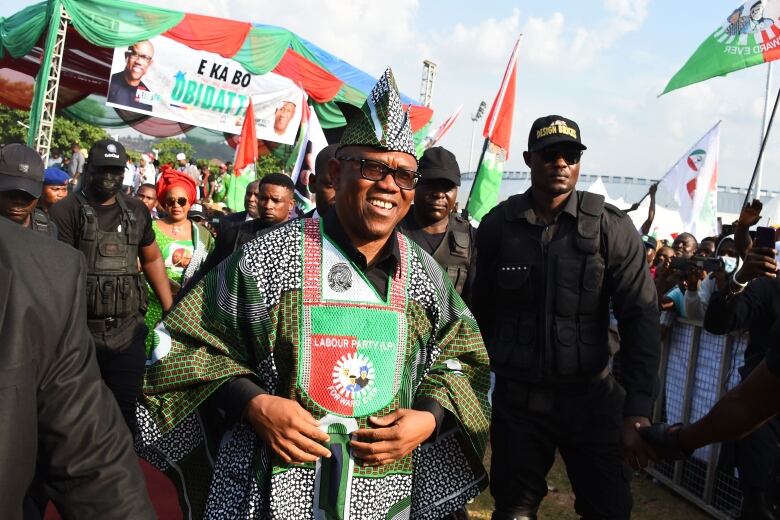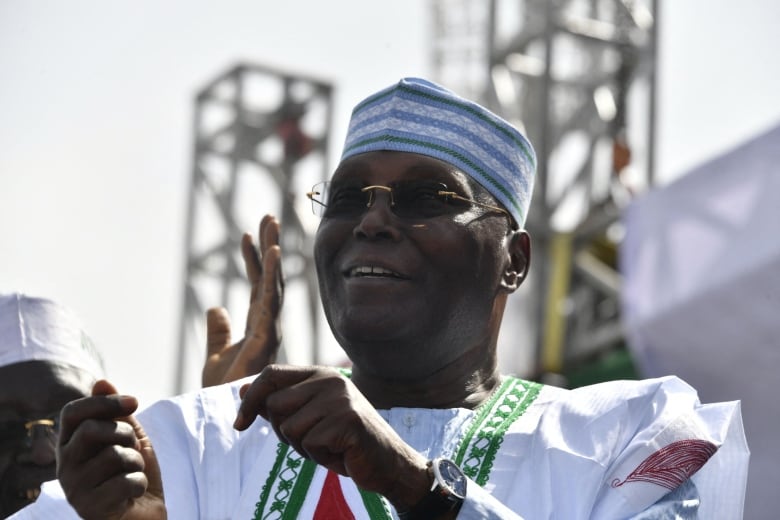Nigerians vote Saturday in presidential and parliamentary elections seen as the most wide open since Africa’s most populous nation switched from military rule to democracy in 1999.
However voters decide, it will lead to a new president with plenty of complex challenges on his plate, from rising frustration over cash and fuel shortages, to unprecedented insecurity and surging inflation.
President Muhammadu Buhari is not on the ballot, having served the maximum two terms allowed by the constitution. Voters will also choose new senators and House of Representative members.
Some 93.4 million people are registered to vote, three-quarters of them between 18 and 49 years of age. In 2019, voter turnout was just 35 per cent.
Who might win?
A lack of reliable polling makes it difficult to predict the winner, but of 18 candidates, three are considered to stand a realistic chance.
Labour Party’s Peter Obi, 61, is leading in some polls after galvanizing young voters, many of whom don’t relate to the major-party candidates, who are both septuagenarian political veterans, in their 70s.
“I don’t wanna vote for either of them, but we have Peter Obi who … is a sign of hope for many of us,” first-time voter Amanda Ihema told Reuters.

Lagos Governor Bola Tinubu, 70, is the candidate for Buhari’s ruling All Progressives Congress
Vice-President Atiku Abubakar, 76, is the main opposition candidate from the People’s Democratic Party (PDP). He is running for president for the sixth time.
While Obi, who left the PDP last year and was Atiku’s running mate in 2019, is banking on frustration over the economy and insecurity to turn voters against the two major parties, Tinubu and Atiku have significant power bases across Nigeria. The ruling party also has a major advantage as it is able to use the state apparatus to mobilize support.
Competition for dwindling oil revenues, patronage and ethnic rivalries typically play a bigger role in Nigeria’s elections than ideology.

Tinubu, Atiku and Obi have all made reviving the economy and ending insecurity top priorities, promising better pay for security forces and more military equipment to defeat insurgents.
Their manifestos say they would scrap a fuel subsidy that cost billions last year but differ on how quickly they would do it. They also promise to invest more in education.
Violence not abating
The top issue for many Nigerian voters is spreading insecurity.
The United Nations (UN) on Thursday appealed for $1.3 billion US to provide assistance to six million Nigerians who are suffering the impact of a long-running Islamist insurgency in the northeast.
Information Radio – MB8:55Nigerians go to the polls tomorrow to elect a new president in an election
We’ll hear from Wilson Akinwale the President Nigerian Association of Manitoba about how Nigerians in the diaspora are reacting to the general elections happening in Nigeria tomorrow
The militant Boko Haram group and its offshoot, Islamic State West Africa Province, have been fighting security forces there for over a decade, displacing more than 2 million people and killing hundreds of others, aid agencies say.
Matthias Schmale, the UN resident and humanitarian co-ordinator for Nigeria said more than 80 per cent of people in need of aid across three states — Borno, Adamawa and Yobe — were women and children.
“They face increased risks of violence, abduction, rape and abuse,” he said.
North-central Nigeria is prone to violence due to clashes between nomadic herders and farmers. The clashes are often painted as an ethno-religious conflict, with most herders Fulani Muslims and the farmers mainly Christian. But experts say population growth and climate change has led to an expansion of the area dedicated to farming, leaving less land available for open grazing for the herders’ cattle.
At least 54 people died last month, including cattle herders and bystanders, in a suspected bomb blast in Nasarawa state.
Economic woes, brain drain
In a country where most people rely on cash for everything from taxi fares to buying food from markets, shortages of naira bills has riled citizens, some of whom have attacked banks and burned cash-dispensing machines.
Sixteen states on Wednesday asked the country’s top court to force the central bank to extend by six months the use of old banknotes, as their withdrawal from circulation has exacerbated shortages.

The recent chaotic scenes at banks added to Nigerians’ frustrations that include high inflation — nearly 22 per cent in January’s report — and fuel shortages.
As a result of the displacements due to violence and the economic woes, the number of children suffering from acute malnutrition was projected to increase to 2 million this year, up from 1.74 million last year, the UN said Thursday.
As the economy suffers, hundreds of Nigerians are leaving the country in a punishing brain drain that is stretching a weak healthcare system and disrupting services from banking to tech.
Canada is one of the top destinations for those leaving. Nigeria ranked fifth among all countries as a source of immigrants who obtained landed immigrant or permanent resident status between 2016 and 2021, according to Statistics Canada.
Tumultuous final week
Authorities said Chinyere Igwe, a House of Representatives member, was arrested early Friday after being caught illegally carrying nearly $500,000 in cash. The arrest raised fresh concerns about the influence of money in the elections.
Worse yet, Labour Party senatorial candidate Oyibo Chukwu and the driver of a campaign minibus belonging to another were killed in separate attacks in southeastern Enugu State late Wednesday. Police said they suspected members of two Biafran separatist groups that have been banned by Nigerian authorities.

Authorities in the northwest Kano state, meanwhile, announced they arrested more than 60 “suspected thugs with dangerous weapons” after supporters of political parties clashed on Thursday.
The Independent National Electoral Commission (INEC) has said 240 polling centres will not be used because of insecurity, mostly in northeastern Taraba state, where Islamists have carried out attacks, as well as southeastern Imo state, a hotbed of separatist and gang violence.
Official results are expected within five days. The candidate with the most votes will be declared the winner if they have at least one-quarter of the vote in two-thirds of Nigeria’s 36 states and the capital. Otherwise there will be a run-off between the two top candidates within 21 days.





More Stories
Fair share: the right office solution can take finding the right partner
Ontario faces crew shortages, aircraft issues in fight against wildfires | Globalnews.ca
Refugee attends open house at Downtown Eastside affordable housing facility – BC | Globalnews.ca